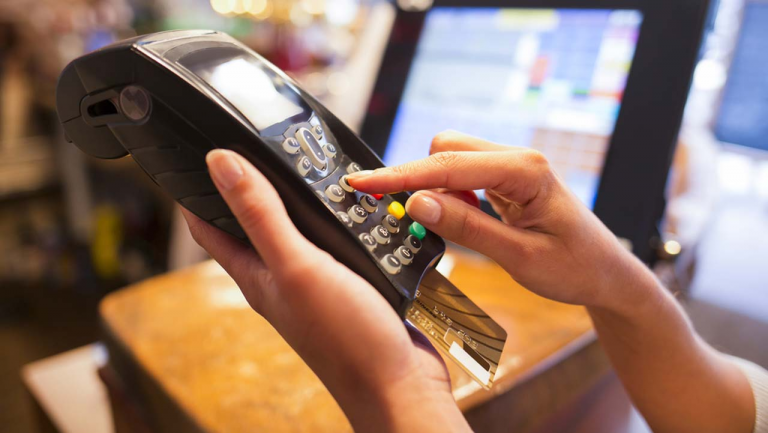
The weakest link in Nigeria’s transition into a digital-payment economy, at this moment, is the performance of the PoS terminals. Largely, to avoid surprises, people still make alternatives in case the debit card fails. Those alternatives are going out with small cash. The Q1 2019 number is showing what everyone has been saying: people are losing confidence in PoS across the nation. For the first time, the quarterly value of transactions dropped, Vanguard reports. A 20% PoS transaction failure rate (NIBSS number) cannot run a digital-anchored payment system.
THE widespread and incessant failure of transactions through Point of Sale, PoS, terminals is threatening the cashless policy as well as the financial inclusion efforts of the banking industry. Consequently, growth rate in value of transactions decelerated in the first quarter of 2019 (Q1’19) due to inadequate capacity on the part of electronic payment operators to cope with rising volume of transactions.
[..]
Data obtained from NIBSS showed that as at Tuesday April 2, PoS transactions failure rose to 20 percent, from 16 percent average for March. This means that one out of every five transactions initiated via PoS terminals across the country was not successful.
I gave up on PoS in July 2017 when I noted that it would not work optimally in Nigeria in the short term. I remain bullish on USSD though. We surely need to fix whatever is affecting PoS to underperform in the nation.
To begin, it is becoming clear that Point of Sale (PoS) terminal will not work in Nigeria, in the short-term. Despite the massive investment on PoS, merchants do not really seem to like it. It looks like a good technology but it has major underlying weak points: it requires them to run generators/inverters to keep them going and the money is not in the bank immediately. The electricity one is a big challenge in Nigeria.
LinkedIn Comment on Feed
Comment #1: The problem of PoS terminals isn’t different from other problems in Nigeria, but in our selective way of picking up what to pay attention to, we usually miss out on the bigger picture.
Look around, from road construction to real estate, power, education, telecom and transportation; they all have the same problem. The issue? Lack of maintenance and our inability to make near accurate projections into the future.
What we usually do in all cases is to deploy shiny toys and equipments, with no credible plans on maintenance and upgrade, so we get stuck every now and then.
What works well for 2 million people may fail 10 million people, and this is where we usually fail. We tend to think that once we deploy technologies or other infrastructures, and they appear to be doing well – that we do not have any need to prepare same for higher demands.
Our problem is cultural, let’s not blame any technology, because we never invented any, and they work well elsewhere. What needs reworking should be our brains and how we manage things.
Comment #2: The ranking of profit objectives over service is the albatross on the neck of most tech offerings in Nigeria.
Without deepening its service inclusion, banks and POS marchants simply deploy these terminals and then sit back to tick the ROI boxes- Yes, each POS terminal is target driven:Not a bad idea to say.
But, what sense does it make at our stage of development? You do not expect to be a big player in driving financial inclusion in a multifaceted country like ours by starting your journey from financial objectives.
Any Fintech offering not paying attention to first solving real-time as well as optimization banking frictions will fail like a box of cards.
POS is failing and will remain on that trajectory. And as Ndubuisi Ekekwe said, the USSD platforms will top the chart- Yes, Telcos understand that they have the fastest RTM.
Again, do not forget, blockchain is coming!
---
Register for Tekedia Mini-MBA (June 9 – Sept 6, 2025), and join Prof Ndubuisi Ekekwe and our global faculty; click here.
Register for Tekedia Mini-MBA edition 17 (June 9 – Sept 6, 2025) today for early bird discounts. Do annual for access to Blucera.com.
Tekedia AI in Business Masterclass opens registrations.
Join Tekedia Capital Syndicate and co-invest in great global startups.
Register to become a better CEO or Director with Tekedia CEO & Director Program.

